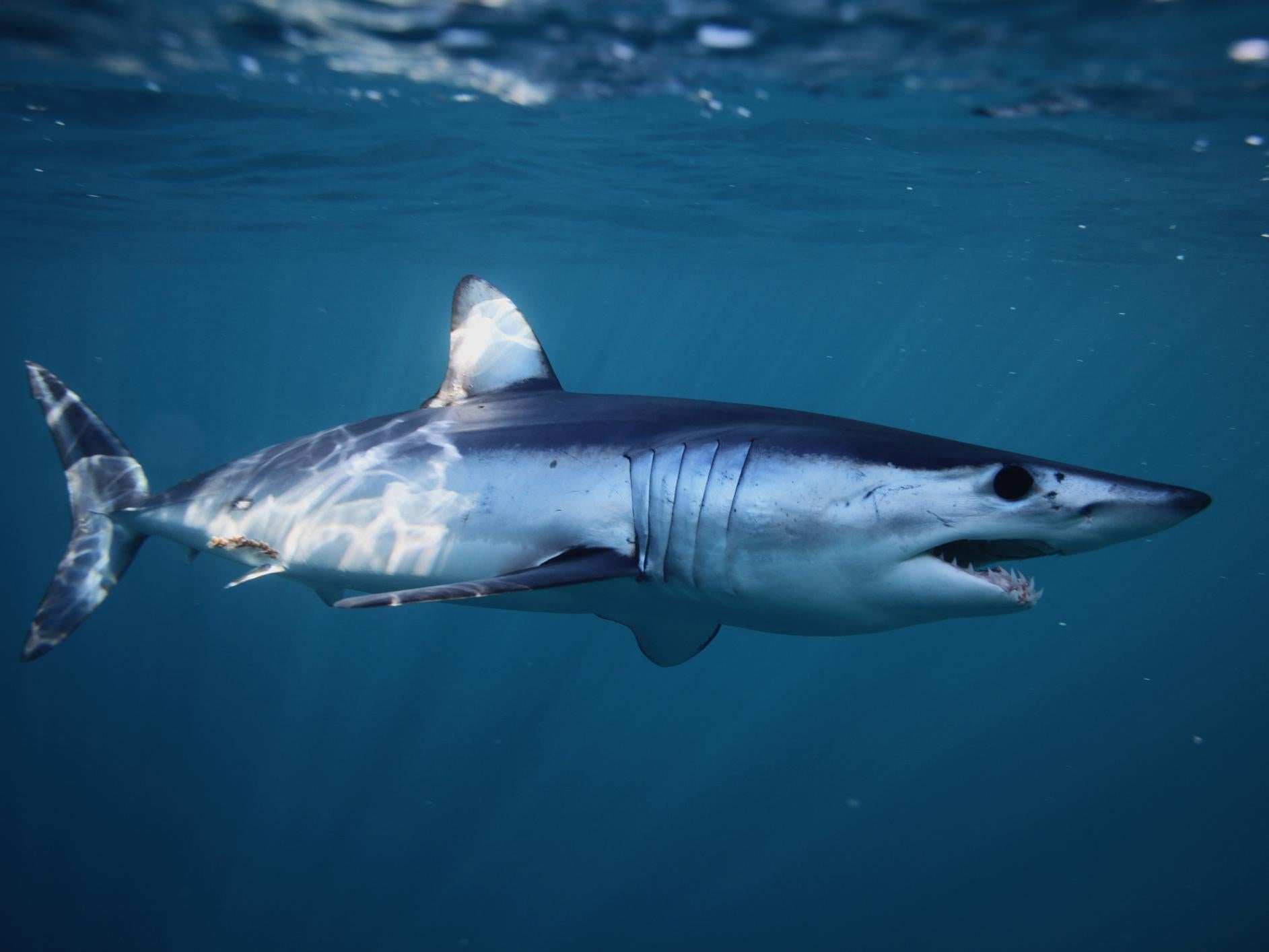World’s fastest shark now facing extinction, conservation experts warn
‘The new information paints a stark warning – we find ourselves on the precipice of losing these unique species forever’

The world’s fastest shark is hurtling towards extinction following years of hunting for its prized meat and fins.
Experts have announced that shortfin makos, along with dozens more species of sharks and rays, are now officially at high risk of being wiped out for good.
Overfishing of these charismatic species, which take a long time to reproduce, by both commercial and recreational anglers has led to many global populations collapsing.
The shortfin mako, which can swim at speeds exceeding 40mph, is not currently subject to any international fishing restrictions despite populations falling by up to 60 per cent in some regions.
Its dramatic decline, along with that of its cousin the longfin mako, was reflected in the International Union for the Conservation of Nature’s latest assessment of shark species’ status.
Both species were downgraded from “vulnerable” to “endangered” – the same category as other famously threatened species like blue whales and Asian elephants.
“Our results are alarming and yet not surprising, as we find the sharks that are especially slow-growing, sought-after and unprotected from overfishing tend to be the most threatened,” said Professor Nicholas Dulvy, co-chair of the IUCN’s Shark Specialist Group.
Earlier this year, a study found a shortfin mako fin for sale alongside other threatened species in an Asian food retailer in the UK.

Conservation groups say there is still hope for the mako and other persecuted sharks if governments implement strict caps on fishing limits.
The success of such measures was reflected in the updated “red list” assessment for sharks and rays in Australia, which was heralded as a world leader in conservation of these animals.
More than half of the species found in Australian waters were deemed to be in no danger, with just a handful of deep-water species still thought to be at risk.
This is thought to be a direct result of authorities there implementing strict fishing quotas.
“The new information paints a stark warning – we find ourselves on the precipice of losing these unique species forever,” said Lee Crockett, director of the Shark Conservation Fund (SCF).
“The good news is that, with strategic support from SCF, we have the chance to win real protection this year with the right action by governments and fishery management bodies.”

A record number of sharks and rays will be proposed for listing at the next meeting of the Convention of International Trade in Endangered Species of Wild Fauna and Flora in May.
At the same time, the EU is facing increasing pressure to announce catch quotas for mako sharks in its waters.
Join our commenting forum
Join thought-provoking conversations, follow other Independent readers and see their replies
Comments
Bookmark popover
Removed from bookmarks